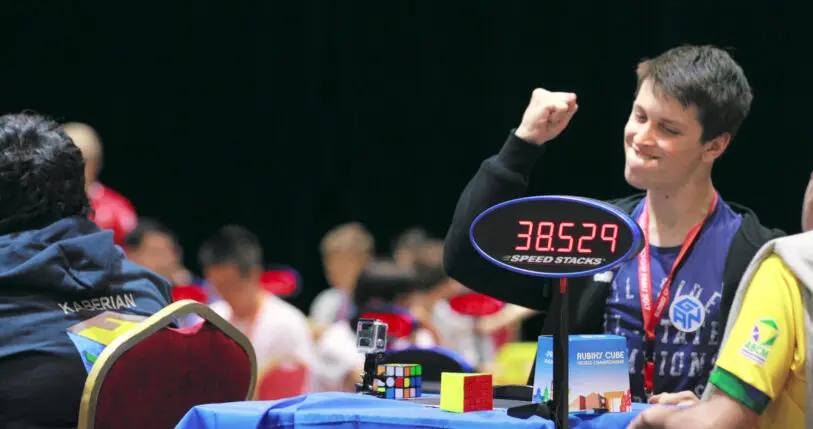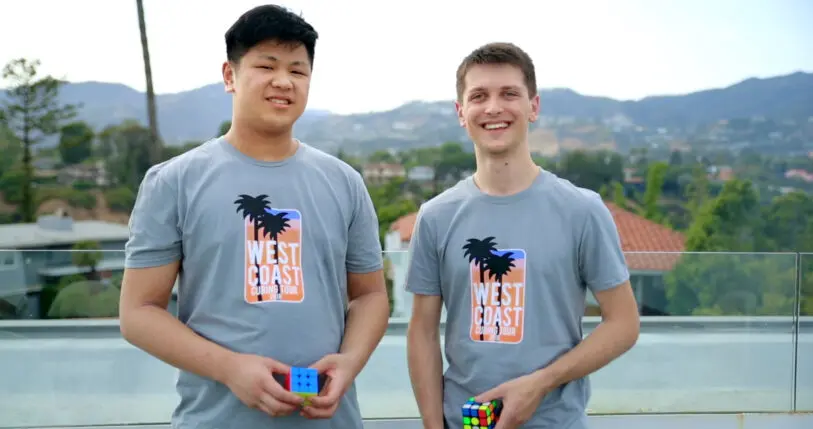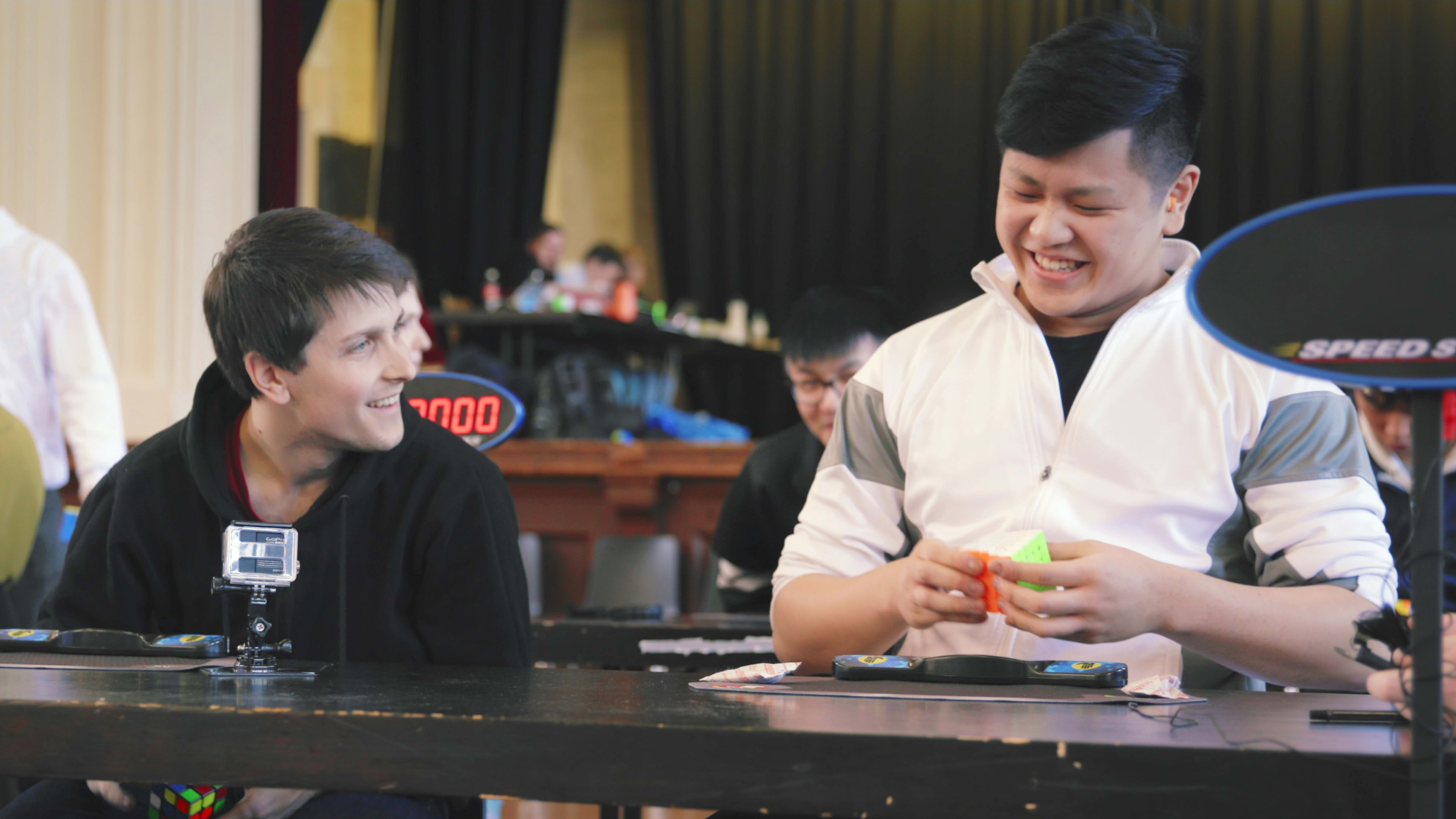They never stop. Their hands are a constant, colorful flutter; a pointillist motion painting. Although the furious movement looks like utter turmoil, it’s actually a process of high order.
The handy mathletes at the center of Netflix’s new documentary, The Speed Cubers, have arranged their entire lives around quickly solving puzzles, and they do so at all waking hours.
“I wouldn’t call it a tic,” says director Sue Kim during a phone interview with Fast Company, “but it’s a thing that they can’t control. Like, their fingers have to be moving in some way. When they go out to dinner, they have to bring a cube. The cubing is endless.”
Even during the more quiet, offhand moments of the film, the Rubik’s-obsessed subjects always seem to be absently throttling a rainbow block as they go about their day.
Perhaps their drive is contagious.
The surprisingly emotional documentary about it is as captivating to watch as cubing itself is to do.
The history of speed cubing is about as short as you might imagine. It starts with the Rubik’s Cube, introduced in 1980, which inspired loosely organized competitions to spring up within its first decade. Only in 2004, however, did people start getting serious enough about it to form an official organization: the World Cube Association. Pretty soon, the WCA formalized competitions around the world, and trained judges and delegates. It didn’t take long for an entire subculture to spring up around the competition, with droves of mathematically inclined youngsters vying to set world records.
Director Sue Kim came by this odd world honestly. Her son, Asher, now 14 years old, started speed cubing a few years ago. His story follows the fairly common formula of a kid picking up a Rubik’s Cube and then tumbling down the rabbit hole of YouTube tutorials. Unlike the children of the 1980s who had to untangle the Rubik’s mystery manually, today’s cubers have a wellspring of data at their fingertips to help them solve puzzles easier and faster. (The short version: It’s all about pattern recognition and memorizing algorithms.)
Once Kim’s young son dragged her to a cubing competition in Portland, Oregon, where the family is based, the director immediately knew she had solved the puzzle of what her next project would be about.

As soon as Kim started researching the world of speed cubing, and attending more competitions, she began to hear about Australia’s Feliks Zemdegs, the Michael Jordan of cubers, and Max Park, possibly the LeBron James. This pair represents two of the most common personality types one is likely to come across in this introverted niche. There’s the STEM-leaning Zemdegs, who is floating toward a career in finance but most passionate about cubing, and there’s the autistic Park, who has a tremendous ability to hyper-focus and who became more engaged with cubing than just about anything else in his life.
At the start of the film, and the outset of Kim’s immersion into the subculture, Zemdegs is just beginning to see some of the many world records he’s set—in categories like One-handed, Blindfolded, and 7×7 (rows of cubes)—crushed by the upstart Park. The director could tell, from a distance at first, that something special was unfolding between the two, and she spent the lead-up to the 2019 world championships capturing it on film.

The Speed Cubers spends the bulk of its brief runtime making viewers fall in love with its two leads, on the road to seeing them face off at the 2019 World Champions, where announcers breathlessly narrate all the action and say things like, “We are officially in a new world era of cubing.” By the time it’s over, just like an idle-handed Cuber, viewers may not be able to stop turning the movie over in their heads.
Just don’t expect the director to solve a Rubik’s Cube quickly if you happen to bump into her chaperoning her son at the next championship. During the course of making the film, she never fulfilled her intended goal of learning how to speed cube herself.
“I haven’t set aside the time to memorize those algorithms,” Kim says. “But it’s still on my to-do list for sure.”
Recognize your brand’s excellence by applying to this year’s Brands That Matter Awards before the early-rate deadline, May 3.
